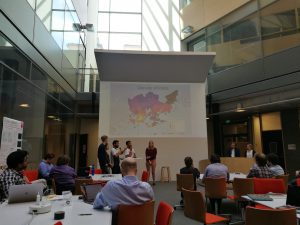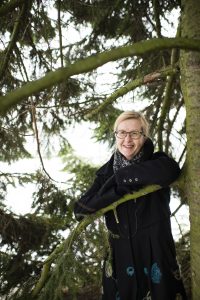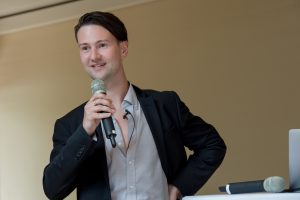This blog post brings together all articles in English published in the Think Open blog last year. A large number of blog posts dealt with services for researchers, but there was also broader discussions on open science and digitalisation in the blog. The researcher will continue to be at the heart of the Think Open, but what kind of articles you wish to read in 2019?
(Kattava Think Open -vuosikatsaus 2018 on luettavissa suomeksi.)
Think Open blog was launched in May 2018, and since then we have published a total of 44 articles. This blog post brings together articles written in English (see the 2018 summary in Finnish). The overview below shows the blog articles thematically ordered.
In 2019, the Think Open blog continues to write on its core themes, digital research services and open science, and the researcher will continue to be at the heart of the blog. But what kind of blog articles you wish to read in 2019? Ideas for the blog posts are gathered on the open Wiki page. You can also contact the blog editor (juuso.ala-kyyny@helsinki.fi) – or you can share your idea in the comment field below.
Services for researchers
![]() Current Status of Open Researcher Identifier ORCID and Greetings from Nordics Workshop (5.6.)
Current Status of Open Researcher Identifier ORCID and Greetings from Nordics Workshop (5.6.)
”Enter once, reuse often” describes the goals of Open Researcher Identifier – to be linkable, global and transparent. To gain improvements for researchers, ORCID among other persistent identifiers need better infrastructure and wider implementation in the research process, including research funding application and reporting. These issues were discussed in Nordics ORCID workshop on May 29th, 2018.
Self-archiving made easy at the University of Helsinki (19.10.)
The Helsinki University Library has launched a new self-archiving service. It is especially for full-texts of publications from 2017 and 2018. As there has been need for archiving also older materials, full-texts of publications from 2010–2016 are also welcome.
IT Consultation Solutions for research – the university’s best kept secret? (5.11.)
The University of Helsinki IT Center provides a supporting service for researchers and research communities few know about. Yet the university’s IT Consultation Solutions specialists have successfully tackled complex research-related IT challenges since 2012. So what is the IT Consultation Solutions service and how can your research benefit? IT consultation specialists Janne Markkanen, Jonne Viljanen and Ville Virtanen explain how the service works.
[Abstract] New preprint repositories OSF and Science Open – a quick test (19.11.)
Preprint-repositories provide an opportunity for quick publication. We tested two archives, OSF Preprints and Science Open Preprints. This is the abstract of the original post (in Finnish). (The original post is available in Finnish.)
Guides, tips and support for data management and open science
Creating a brilliant data management plan (DMP) (8.8.)
What does a great data management plan (DMP) look like? The DataSupport at the University of Helsinki is regularly asked for examples and models of good plans. Here are the best pieces of advice for a researcher to create a great DMP.
Make a better data management plan with UH DataSupport! (5.9.)
University of Helsinki DataSupport will help researchers again this year in preparing data management plans (DMPs), which have become mandatory when applying for funding from Academy of Finland. DataSupport’s services consist of workshops that are held at all campuses as well as of DMP commenting service, which is open until 19th of September.
What everyone should know about documentation – new guide pulls together the basics in 12 pages (10.12.)
University of Helsinki’s DataSupport has published a guide for research data documentation. The guide introduces the basic elements of documentation and meets the needs of most researchers.
Open science in action – opening data and making use of open data

[Abstract] Reflections of Digital Humanities Hackathon 2018 (18.6.)
Helsinki Centre for Digital humanities has organized hackathons since 2014. This year it lasted for eight days. Our reporter lived each moment of it with passion and shares his experiences in this blog.
Enthusiasm about the new horizons – automatic data science adapted to European history and its everyday documents: newspapers (21.6.)
The NewsEye project builds an automatic Research Assistant based on artificial intelligence. Research will benefit from the tools and possibilities of searching and browsing huge amounts of text material. Kick off meeting of the project was held in France in May.
[Abstract] Opening the data with a user in mind – OpenFIRE as an exemplary case of data publishing (1.8.)
What is the opening of data in practice? What does it require? The OpenFIRE project at the Institute of Seismology highlights the work and expertise needed to open research data, and it also reveals the problems that come along the way.
Interviews and discussions about open science
[Abstract] The battle over data has begun – Jouko Väänänen and Mikko Tolonen discuss digitalisation and open science (7.5.)
In the opening post of the Think Open blog, Vice-Rector Jouko Väänänen and Assistant Professor Mikko Tolonen discuss the themes of the new blog.
[Abstract] How to promote openness? Paula Eerola and Tuuli Toivonen discuss scientific publishing and research data (16.11.)
Vice rector Paula Eerola and associate professor of geoinformatics Tuuli Toivonen discuss the Plan S declaration, open access incentives, research-data issues, data management and corporate collaboration.

”It does not help if the data is open but impossible to understand” – Jaana Bäck’s thoughts on open science (17.12.)
”As a fundamental concept for helping in open science, the FAIR principle should be brought to the attention of everybody at the university”, writes professor Jaana Bäck in this blog post. For Bäck, following the principles of open science is a natural way of doing research because it improves the impact of her scientific work. ”Open access to the data allows efficient collaboration, co-authorship with researchers from other countries and continents, and overall, larger visibility and impact of the work we do.”
In connection with the International Open Access Week, the Helsinki University Library organized a film screening at the Kaisa House (see the blog post). Jason Schmitt’s Paywall Document: The Business of Scholarship (2018) is a document on scientific publishing business and on the need for open science. The film is openly available on the movie website.
Guidelines, infrastructures and education related to open science
[Abstract] Data is on its ways to a recognized research output – the roadmap guides towards better research data citation practices (23.5.)
Recently published data citation roadmap for Finland demonstrates how the data citation is closely related to a number of research data issues, such as research data management, scientific publishing, and the responsible conduct of research.

Open Science infrastructures in the Humanities? Greetings from DARIAH in Paris (14.9.)
Open science and data infrastructures can greatly support certain research areas in the humanities. The 2018 annual DARIAH meeting gathered a number of researchers, librarians, and other parties to discuss these topics in Paris. This blog post provides a summary and some highlights from the meeting.
Finnish repositories support stronger national coordination in OpenAIRE harvesting – a summary of the OpenAIRE survey results (19.9.)
The survey’s key message to OpenAIRE is related to the changing metadata requirements. National coordination in OpenAIRE harvesting is seen as a solution for laborious metadata work.
Introduction to Open Data Science (you may become a data scientist!) (15.10.)
Open Data, Open Science, and Data Science – our newest course combines these hot topics with an attractive twist. Introduction to Open Data Science (IODS) is open for everyone willing to learn how to use RStudio, R Markdown and GitHub (state-of-the-art tools of data science) to visualise and analyse open data with multivariate statistical methods following principles and practices of reproducible research. Cha(lle)nge your plans and become a data scientist!
